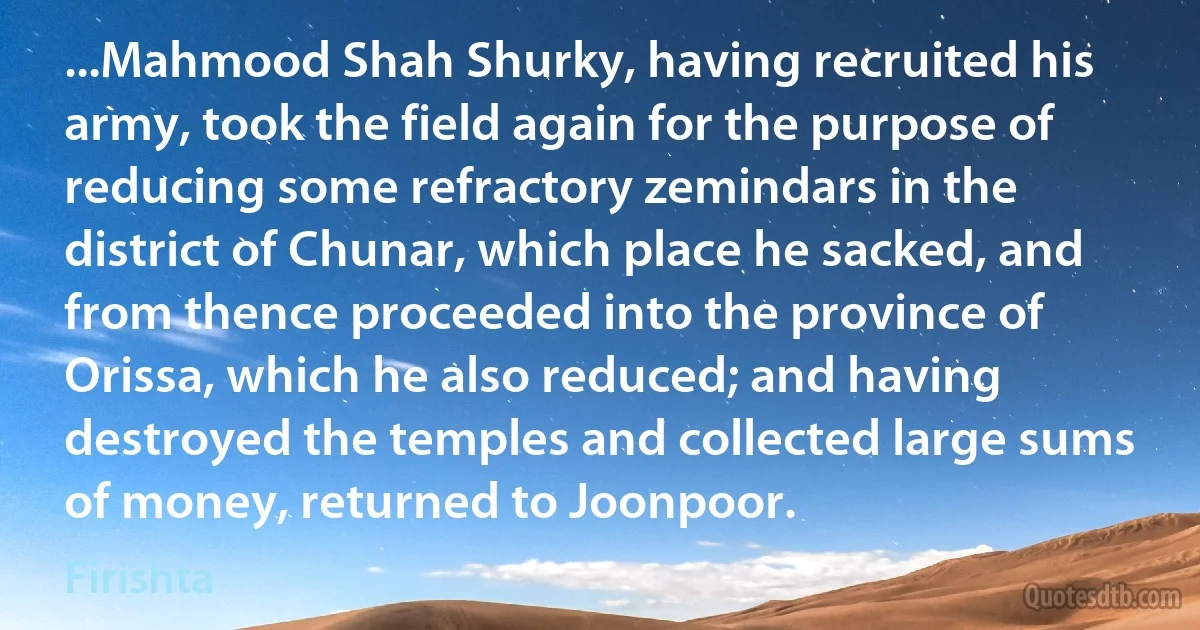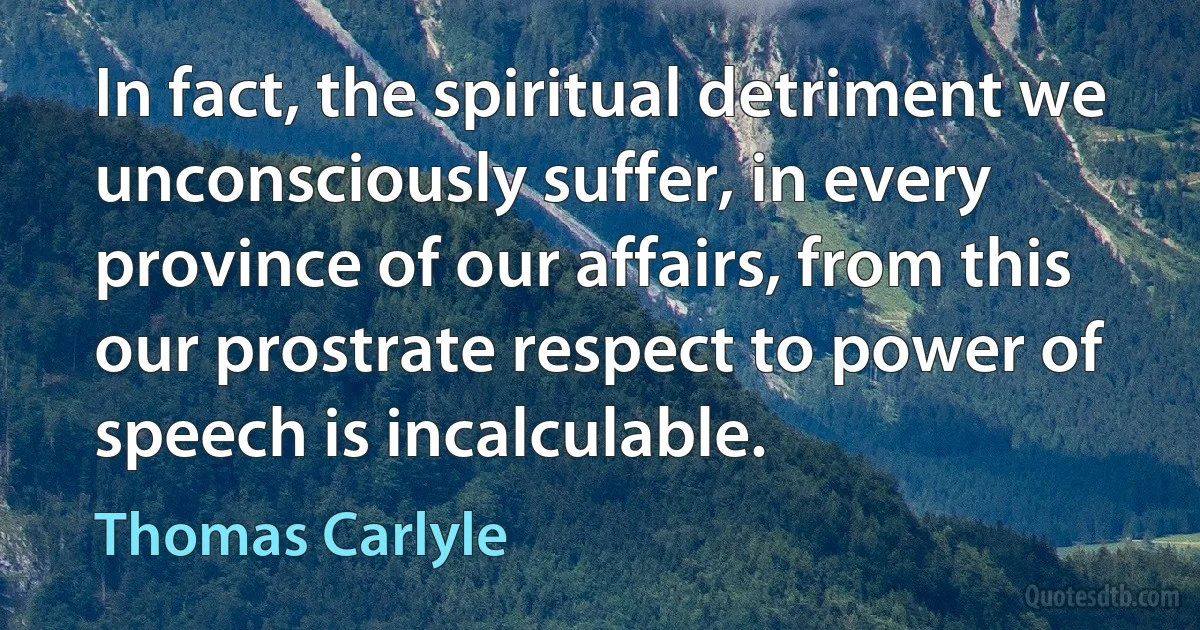Province Quotes - page 6
It had been brought to the notice of His Majesty that during the late reign many idol temples had been begun, but remained unfinished at Benares, the great stronghold of infidelity. The infidels were now desirous of completing them. His Majesty, the defender of the faith, gave orders that at Benares, and throughout all his dominions in every place, all temples that had been begun should be cast down. It was now reported from the province of Allahabad that seventy-six temples had been destroyed in the district of Benares.

Shah Jahan
It is related in the Akbar ShahI, that when Sher Shah rendered up his life to the angel of death in Kalinjar, Jalal Khan, his youngest son, was in the town of Rewan, in the province of Bhata, and his eldest son ‘Adil Khan, the heir-apparent, in the fort of Runthur (Ranthambhor). The nobles perceived that ‘Adil KhAn would be unable to arrive with speed, and as the State required a head, they despatched a person to summon Jalal Khan who was nearer. He reached Kalinjar in five days, and by the assistance of ‘Isa Hajjab and other grandees, was raised to the throne near the fort of Kalinjar, on the 15th of the month RabI'u-1 awwal, 952 A. H. (25th May, 1545 CE). He assumed the title of Islam Shah... "After his accession, he ordered the Raja of Kalinjar, who had been captured with seventy of his adherents, to be put to death, and directed that not one of them should be spared...

Sher Shah Suri
The human aspect of industry has changed very considerably in the last fifty years. The nature and range of these changes are still partly unknown to us, but the question of their significance is no longer in dispute. Whereas the human problems of industry were regarded until recently as lying within the strict province of the specialist, it is now beginning to be realized that a clear statement of such problems in particular situations is necessary to the effective thinking of every business administrator and every economic expert.

Elton Mayo
Islamic literary sources provide far more extensive evidence of temple destruction by the Muslim invaders of India in medieval times. They also cover a larger area, from Sinkiang and Transoxiana in the North to Tamil Nadu in the South, and from the Seistan province of present-day Iran in the West to Assam in the East. As we wade through this evidence, we can visualise how this vast area, which was for long the cradle of Hindu culture, came to be literally littered with the ruins of temples and monasteries belonging to all schools of Sanãtana Dharma-Bauddha, Jaina, Šaiva, Šãkta, VaishNava and the rest. Archaeological explorations and excavations in modern times have proved unmistakably that most of the mosques, mazãrs, ziãrats and dargãhs which were built in this area in medieval times, stood on the sites of and were made from the materials of deliberately demolished Hindu monuments.

Sita Ram Goel
A thousand ardent oilers swung the long spout 'twixt their nods,
And tried to glimpse a meaning in the challenge of the gods.And then one night there landed on a Mineola swale
A plane that looked like pewter, with a carrier of mail.Its wings were tinged like tea-box skins, each truss of shadow gray,
Its cabin but an alcove slung beneath a metal ray. The Spirit of St. Louis was inscribed upon the lee;
It came from out a province that had never seen the sea.

Nathalia Crane
If the depths of our mind contain within it strange forces capable of augmenting those on the surface, or of waging a victorious battle against them, there is every reason to seize them - first to seize them, then, if need be, to submit them to the control of our reason. The analysts themselves have everything to gain by it. But it is worth noting that no means has been designated a priori for carrying out this undertaking, that until further notice it can be construed to be the province of poets as well as scholars, and that its success is not dependent upon the more or less capricious paths that will be followed.

André Breton



